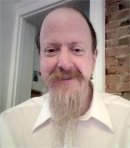|
Plenary Lecture
Logarithmic Number Systems

Professor Mark Arnold
Lehigh University
Bethlehem, PA
USA
E-mail: maab@lehigh.edu
Abstract:
The Logarithmic Number System (LNS) represents real
numbers using a finite precision logarithm. Like any
finite representation, the number of bits chosen
determines the resolution of the system and therefore
the application performance. LNS offers better
performance and lower cost for "easy" real operations
such as multiplication, division, roots and powers
compared to fixed- and floating-point number systems
where such operations are thought to be hard. The
problems with LNS are that addition and especially
subtraction are increasingly expensive when performed
with extreme accuracy, because these operations involve
table lookup and possibly interpolation. Also,
conversion to and from conventional representations can
be similarly expensive. Another inconvenience is the
fact the logarithm of zero is undefined. This talk will
consider how certain special-purpose applications have
overcome these problems to exploit LNS advantages,
giving hardware that is faster, cheaper and consumes
less power than those based on traditional arithmetic.
Examples of special-purpose systems that have adopted
LNS successfully include neural networks, multimedia
encoders/decoders, control systems, speech recognition
and N-body simulators. In each of these applications,
designers have reformulated the algorithm to avoid
certain LNS weaknesses. LNS works for such applications
because they have a large share of "easy" operations and
they tolerate lower-precision results. Traditionally,
LNS sum and difference calculation have carried out with
enough accuracy to be faithful to the number of bits of
precision required for the application, however this can
be relaxed in some cases. To minimize the cost of the
LNS, simulative studies determine the minimum number of
bits for in the LNS representation for the application
to operate successfully.
This talk will explore many LNS techniques. These
include interpolation methods, cotransformation of
difficult subtractions into easier additions,
elimination of subtractions through redundancy,
bit-serial arithmetic and ROM-less approximations. Also,
this talk will consider recent implementations that
generalize LNS, such as for complex values.
Brief Biography of the Speaker:
Mark G. Arnold received the BS and MS from the
University of Wyoming (USA), and the PhD from the
University of Manchester (UK) Institute of Science and
Technology (UMIST). From 1982 to 2000, he was on the
faculty of the University of Wyoming. From 2000 to 2002,
he was a lecturer at UMIST. In 2002, he joined the
faculty of Lehigh University (USA). In 1976, he
co-developed SCELBAL, the first open-source
floating-point high-level language for personal
computers. In 1997, he received the best paper award
from Open Verilog International for describing the
Verilog Implicit To One-hot (VITO) tool he co-developed.
In 2007, he received the best paper award from the
Application-specific Systems, Architectures and
Processors (ASAP) conference for a paper describing
novel cotransformations for Logarithmic Number Systems
(LNS). He is the author of over one hundred technical
papers (the majority on LNS) and the book Verilog
Digital Computer Design. His research interests include
computer arithmetic, hardware description languages,
microrobotics and embedded, control, multimedia and
application-specific systems.
|